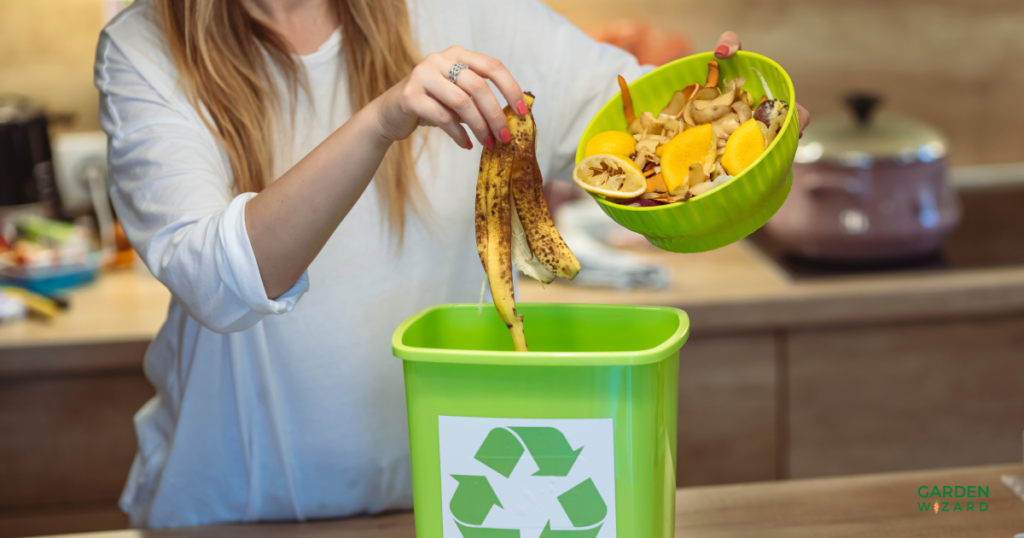
You brought home this beautiful, lush potted plant from the gardening store. A few days later, it starts to wilt, the leaves turn yellow. ‘Maybe it needs more water? Or less?’ Your mind starts to wonder. How come the plant was pretty and healthy when you got it and now it seems that you have killed it?
Remember: Plants need more than just water and sunlight. They need nutrients to thrive. The expert gardeners from the store know this and surely used fertiliser to keep their ‘goods’ in tough shape.
While it would be easier to use synthetic (also called regular, conventional, or chemical) fertilisers, keep in mind that these types of products harm soil quality. They reduce the growth of microbes and may leach into groundwater and increase its toxicity, causing water pollution.
Instead of heading to your garden centre, why not take a trip to your pantry and discover that there are plenty of organic fertilisers that you can whip up? Here are some ideas for you:
There are two ways to use coffee grounds for your plants – as compost and as fertiliser.
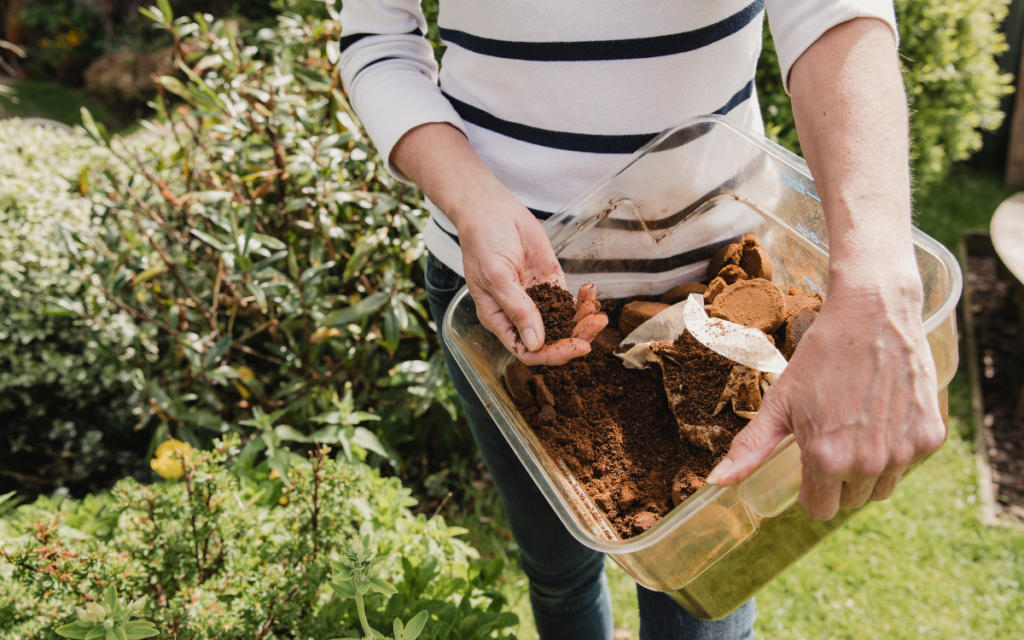
Add used coffee grounds to your compost pile. A study found that vermicompost with coffee grounds and kitchen scraps resulted in a higher percentage of nutrient elements than one without coffee. Keep in mind that used coffee grounds are considered green compost material which needs a corresponding amount of brown compost material to achieve balance.
As a fertiliser, sprinkle used coffee grounds directly on your soil. By this, let’s put the emphasis on used. Freshly ground coffee is very acidic for plants, but not if it has been used or rinsed with water. It will improve soil drainage, help microorganisms thrive and attract earthworms, which are beneficial to your plants.
On the other end of the spectrum, eggshells are very alkaline. Plants that love egg shells are spinach, broccoli, eggplant, pepper, swiss chard, lettuce and squash. These plants like low-acid soil to grow and absorb nutrients.
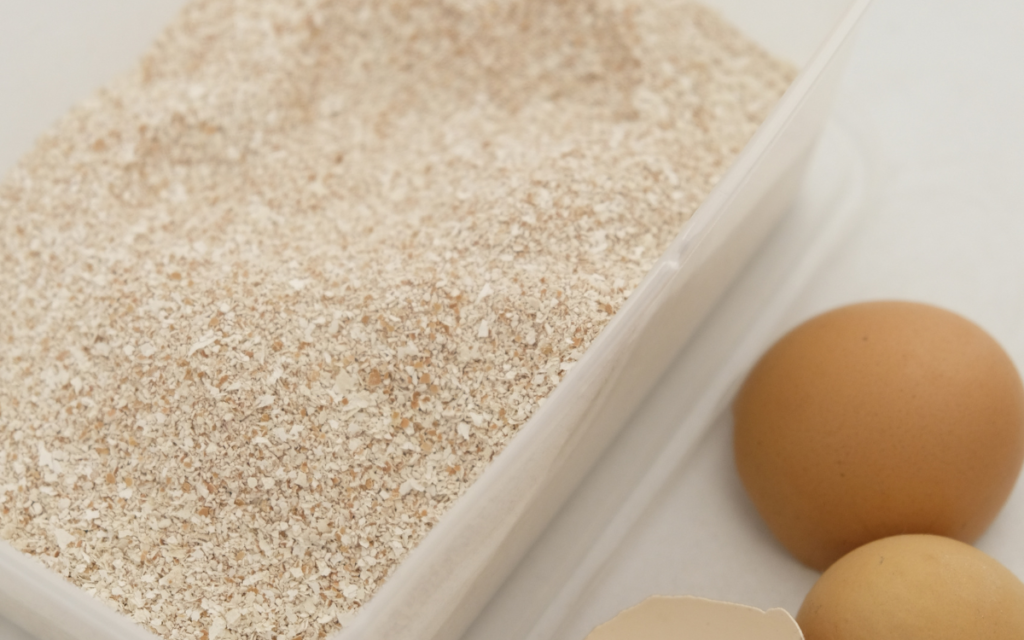
Since eggshells take too long to decompose, you have to process them before gaining any nutritional value. There are two ways to make fertiliser out of egg shells. The first way is by crushing the egg shells manually. Take cleaned and dried eggshells and crush them with a mortar and pestle, rolling pin or food processor. Then, mix the powdered result into your garden bed, potting mix or garden soil.
The second way is by grinding the eggshells using a coffee grinder. Add the ground eggshells to your compost bin or sprinkle them directly into your planting holes.
Next time you throw a banana peel in the trash, stop yourself. Do this instead: Put your banana peels in a jar or pitcher and fill them with water. Let the banana peel soak for a few hours. Discard the banana peel, and water your plants with the resulting liquid.
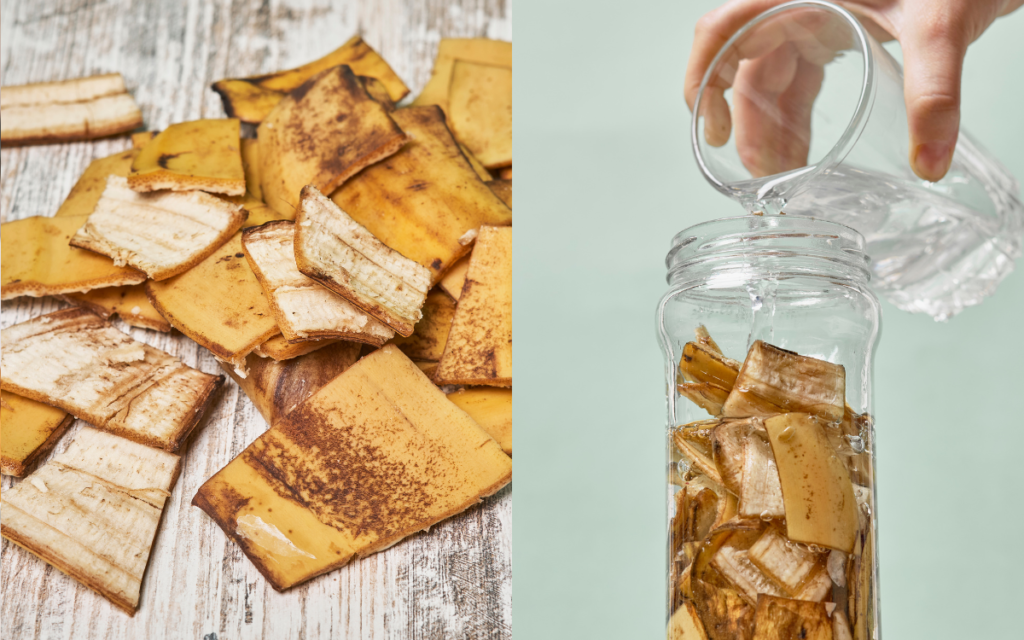
Bananas and their peels are rich in Potassium, one of the key ingredients of good fertiliser. Though there are better sources of potassium such as avocados, beets and sweet potatoes, bananas are usually recommended because of the ease of preparation.
However, be careful of steeping banana peels for too long! Some have reported soaking the peels for days under the sun and resulting in a very sweet-smelling, gnat-attracting potion.
Next time you weed your garden, don’t throw them out right away. Chop them into short pieces and then put them in a pail or bin until halfway. Next, add water (not chlorinated water, please!) and let it soak for a few days to two weeks. Do regular stirring. The goal is to make sure that every part gets aerated. Protect it from bugs and mosquitoes by covering it with a screen.
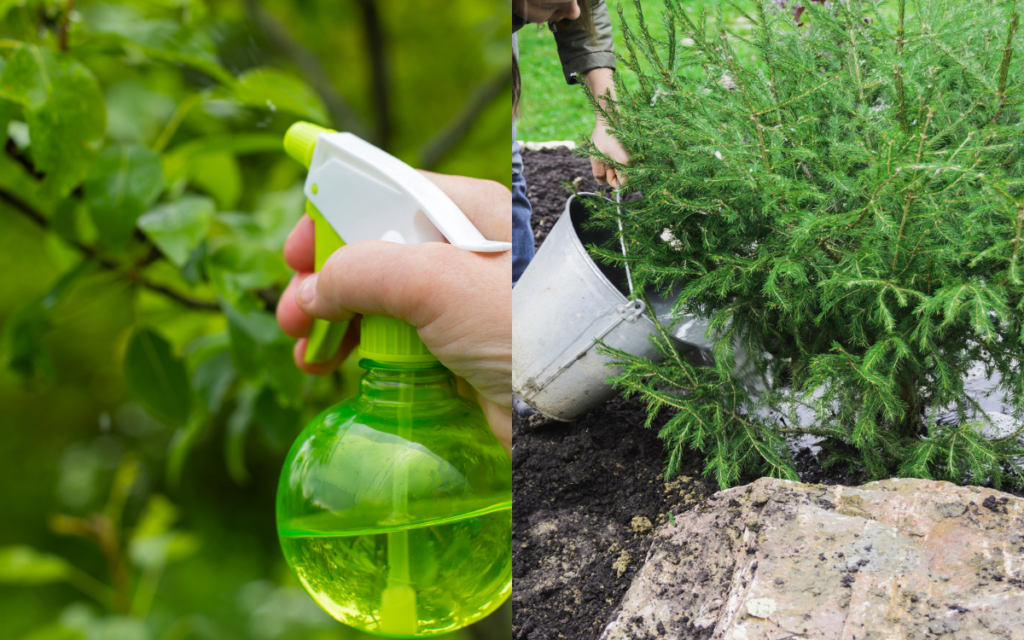
After steeping, strain away the plant materials. You can add that to your compost mulch. The resulting water from your weeds and grass tea should be coloured like tea. Depending on your preference, you can use this full strength or diluted (to look like weak tea). Use it as a foliar spray or soil drench – either way, your plants will be overjoyed.
Other great additions to your weed and grass tea are dandelions, alfalfa, horsetail, chicory, comfrey and willow. Avoid anything that is toxic or can cause a reaction like poison ivy or poison oak.
Do you want to take your eco-friendly gardening to another level? See another post on eco-friendly hacks to gardening or check out helpful tools to make your gardening easier!